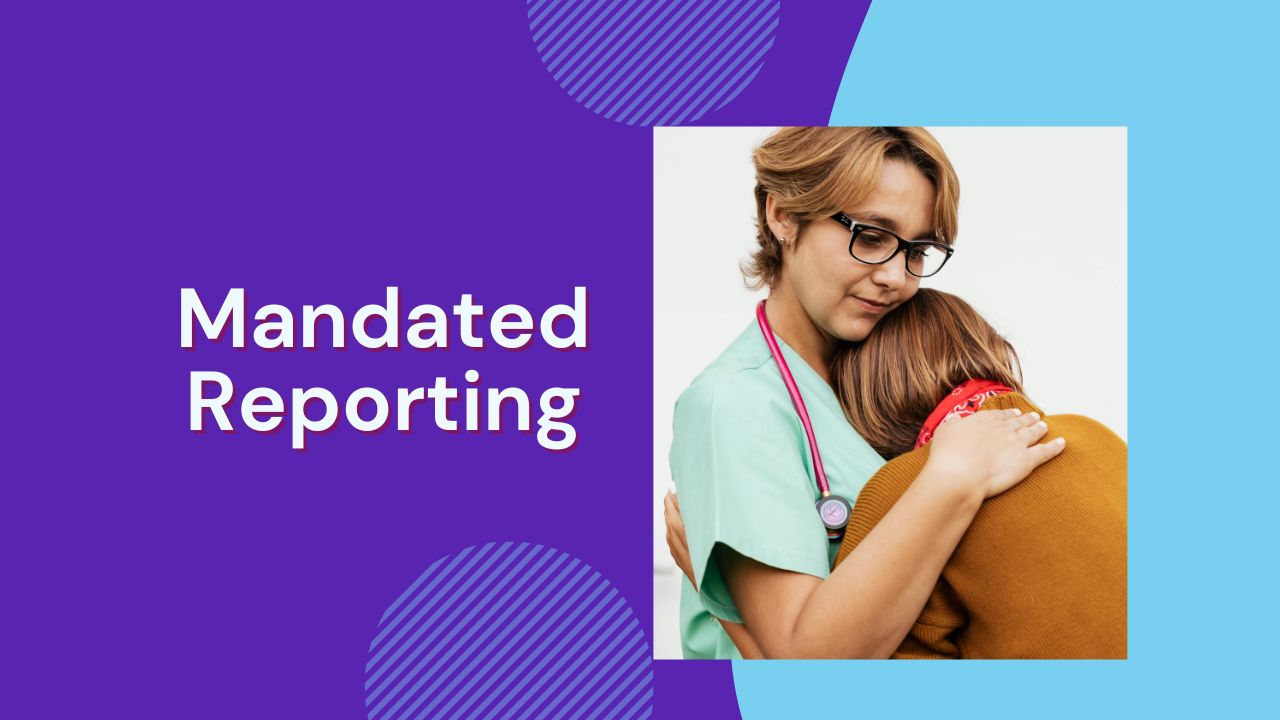Would you like your nursing license to be valid in different states? Would you like to travel and pick up PRN nursing shifts as you go?
If your state is not yet fully part of the nursing licensure compact, it may have partial implementation or pending legislation.
Discover what the nurse licensure compact is, which states are compact states for nursing, which others will be shortly, and how to apply for a compact state nursing license in this ultimate guide to the nursing licensure compact.
What Is the Nursing Licensure Compact?
The Nursing Licensure Compact (NLC) is an agreement between U.S. states and jurisdictions that allows nurses to practice in other NLC-participating states without having to obtain a new license for that location. The Nursing Licensure Compact makes it easier for nurses to find work in different states while ensuring they meet the agreed-upon safety standards set by the NLC.
In the past, nurses needed to obtain separate licenses for each state or jurisdiction where they worked. This requirement started to change when Maryland, Texas, Utah, and Wisconsin passed the Nurse Licensure Compact (NLC) into law on January 1, 2000. Through the NLC, registered nurses (RNs) and licensed practical/vocational nurses (LPN/LVNs) could practice in multiple states—physically or remotely—with a single license and without having to fulfill additional requirements or pay extra fees.
Although 25 states joined the NLC, many nurses and nursing associations expressed concerns, and new memberships plateaued. Based on these concerns, the National Council of State Boards of Nursing (NCSBN) amended some aspects of the compact, creating the enhanced Nursing Licensure Compact (eNLC) in 2015.
This newly proposed legislation aimed to replace the original NLC and implement requirements addressing the issues that reluctant nurses and nursing associations had voiced. Members of the eNLC needed to have the same licensing requirements, were authorized to obtain and submit criminal background checks, and were required to report all disciplinary measures.
On July 20, 2017, the eNLC came into effect when North Carolina tipped the balance in favor of compact states by becoming the 26th member. The eNLC was implemented six months later, on January 19, 2018. On this date, nurses with multi-state licenses were able to begin practicing in eNLC states.
Compact Nursing States in 2024
Since 2017, many more states have entered or are in the process of entering the nursing compact. For example, although the Massachusetts Nurses Association voiced concerns about the nursing compact, Massachusetts is now in the process of becoming a compact state, in addition to Illinois, New York, California, Michigan, and others that had resisted the change initially.

List of Compact Nursing States
There are currently 39 states that are members of the nursing compact—or a total of 41 US jurisdictions. Here is a list of compact states for RNs and LPNs/LVNs:
- Alabama
- Arizona
- Arkansas
- Colorado
- Delaware
- Florida
- Georgia
- Idaho
- Indiana
- Iowa
- Kansas
- Kentucky
- Louisiana
- Maine
- Maryland
- Mississippi
- Missouri
- Montana
- Nebraska
- New Hampshire
- New Jersey
- New Mexico
- North Carolina
- North Dakota
- Ohio
- Oklahoma
- Pennsylvania (Partial implementation)
- Rhode Island
- South Carolina
- South Dakota
- Tennessee
- Texas
- Utah
- Vermont
- Virginia
- Washington
- West Virginia
- Wisconsin
- Wyoming
The following US territories are also eNLC members: Guam has a partial implementation, and the Virgin Islands is awaiting implementation.
States with a Pending NLC Status
A pending status indicates that these states have proposed bills to join the Nursing Licensure Compact, but the legislation has not yet passed. Nine states currently have a pending nursing compact status:
The nation’s capital, Washington D.C., also has a pending status.
States with No Active or Pending NLC Legislation
At this point, only two states have neither active nor pending NLC legislation:
The US territories of American Samoa and Northern Mariana Islands also haven’t entered the nursing compact nor initiated legislation.
Benefits and Disadvantages of Joining the Nurse Compact
With 48 states in the compact or awaiting legislation, the nurse compact is widely accepted in the United States. However, some nurses and nursing associations waited many years before entering, and a couple are still resisting the change. What are the advantages of the NLC that are responsible for drawing nearly all states into the nursing compact, and which factors have led to hesitancy?
Benefits of Joining the NLC
According to the National Council of State Boards of Nursing, the Nurse Licensure Compact offers the following benefits for nurses, employers, and the nation as a whole:
- It allows nurses to practice in person or provide telehealth nursing services to patients across state lines without requiring additional licenses.
- It facilitates online nursing education.
- It reduces expenses for organizations that employ nurses.
- It enables nurses to cross state borders and provide vital nursing services during or after disasters.
- It facilitates practicing across state borders.
Disadvantages of Joining the NLC
Arguably, most of the disadvantages of the NLC were eliminated with the creation of the eNLC, as is evidenced by 23 of the remaining 25 states joining the nursing compact or at least initiating the process after the 2017 amendments. However, some aspects that individuals and organizations were concerned about before the amendments to the nursing compact remain in the eNLC, and some attempts to assuage concerns raised new ones.
Lower Standards for Nursing Licensure in Compact States
Some nurses and nursing associations were concerned that the standards for nursing licensure in their states were higher than those of the nursing compact and did not want to weaken those standards. Although the eNLC requires nursing programs to be approved by a board of nursing and requires candidates to qualify for licensure in their home states, which includes passing the National Council Licensure Examination for Registered Nurses (NCLEX-RN) or Practical Nurses (NCLEX-PN), it is true that state requirements vary, including those regarding continuing education units (CEUs).
Impacts of Disciplinary Actions
Individuals and organizations were also concerned about loosening standards regarding background checks and disciplinary actions. In this regard, the eNLC requires applicants seeking initial licensure or licensure by endorsement to undergo a background check through fingerprints or biometric data from the Federal Bureau of Investigation (FBI) and the state. The applicant’s criminal history cannot contain a conviction, a plea, or an agreed disposition of a felony offense at the federal or state level. State boards of nursing assess misdemeanor convictions on a case-by-case basis.
Furthermore, nurses must follow the practice laws of the states they practice in, and compact states can take disciplinary action against nurses’ privilege to practice (PTP) status when nurses violate state laws or the states’ nurse practice acts. Participating in a national database, the Coordinated Licensure Information System (CLIS), or a Nurses License Verification database allows compact states to share information to verify nurse licensure, disciplinary actions, and practice privileges.
So far, so good, right? Where is the disadvantage?
Disciplinary action could seriously impact a nurse’s ability to practice, not just in the state where the nurse is being disciplined but in all compact states. Not being able to practice while under investigation places a significant financial burden on nurses. In other words, the increased privilege to practice across state lines comes with increased exposure to disciplinary action.
How to Get a Multistate Nursing License
Under the eNLC, registered nurses and licensed practical/vocational nurses living in compact states and meeting the uniform licensure requirements (ULRs) may apply for multi state nursing licenses. Applicants may apply through their respective boards of nursing. The following are the uniform licensure requirements:
- Meet the requirements for an LPN/LVN or RN license in the compact state of residency, including graduating from a board-approved nursing program or an international nursing program (approved by the authorized accrediting body in the foreign country and verified by an independent credentials review agency)
- Pass an English proficiency examination (applicable for graduates of international education programs not taught in English or for candidates whose native language is not English)
- Pass the NCLEX-RN or NCLEX-PN or a predecessor exam
- Hold or be eligible for holding an active, unencumbered license
- Pass fingerprint-based criminal background checks at the state and federal levels
- Have not been convicted or found guilty or have entered into an agreed disposition of a felony offense under applicable federal or state criminal law
- Have no misdemeanor convictions associated with the nursing practice (assessed on a case-by-case basis)
- Are not currently participating in alternative programs (must self-disclose current participation in alternative programs)
- Have a valid United States Social Security number
The following are additional considerations related to obtaining and maintaining a multistate license:
- Multistate licenses are only available for candidates whose primary state of residence (PSOR) is an eNLC state. Your PSOR is the state where you can prove you legally reside. For example, it is the state from which you have your driver’s license and voter registration card; it is also the state declared on your federal tax filing. It is not related to home or property ownership. Finally, you may only have one PSOR.
- You do not have to apply for licensure in the state of your nursing program unless you plan on living and working in that state.
- The state where you obtain your license is not dependent on where you take the NCLEX. Since the NCLEX is a national exam, candidates can take this exam at any Pearson VUE testing site throughout the US.
- You must obtain your initial license through examination; you may get additional licenses by applying for licensure by endorsement.
Nursing Compact States Frequently Asked Questions
Whether you still have lingering doubts after reading this article or jumped straight to this section, the following nursing compact states FAQs should clarify the most critical aspects of the NLC and of working in different states as a nurse.
What Is a Compact Nursing License?
A compact nursing license is a multistate LPN/LVN or RN license from a state that is part of the eNLC. Nurses in compact states may also apply for single-state licenses.
Can Nurses Work in Different States?
Nurses can work in all 50 states with the appropriate licensure. A nurse with a multistate license from a compact state can work in all compact states with a single license. Nurses must obtain additional single-state licenses to work in non-compact states. Nurses from non-compact states can obtain single-state licenses for each state they wish to practice in, including compact states. Additionally, some states offer single-state temporary licenses, which nurses can obtain shortly after application submission.
How Do I Get a Multistate License?
As detailed above, a candidate must live in a compact state and meet the uniform licensure requirements to obtain a multistate license.
Which States Are Currently Not in the Compact?
Nevada and Oregon are the only two states currently not in the compact nor with pending status. Furthermore, the following states have pending status: Alaska, California, Connecticut, Hawaii, Illinois, Massachusetts, Michigan, Minnesota, and New York.
Do I Need to Have a Multistate License to Pick Up PRN Shifts?
As with all nursing jobs, PRN shifts require nurses to hold active, unencumbered licenses valid in the state of the nursing job. Therefore, nurses don’t need multistate licenses to pick up PRN shifts in their primary state of residence. Nurses may also apply for additional single-state licenses to pick up PRN shifts in other states. However, holding multistate licenses allows RNs and LPNs/LVNs to pick up PRN shifts in any compact state without requiring additional licensure.
Ready to Start Working in Other States?
Obtaining a multistate license from a compact state enables a nurse to work in most states—including some of the highest-paying states for RNs—without requiring an additional license. Additionally, RNs and LPNs/LVNs can pick up PRN shifts throughout the United States quickly and easily with Nursa.
Nursa is an open nurse market connecting hospitals and other healthcare facilities to PRN clinicians to put a nurse at the bedside of every patient in need. All nurses need to do is sign up for free, create a professional profile, upload their nursing credentials for verification, and begin requesting PRN shifts. Find PRN nursing jobs near you or in the state you wish to work with Nursa.
Sources:
- The Online Journal of Issues in Nursing (OJIN): The Nursing Licensure Compact and Its Disciplinary Provisions: What Nurses Should Know
- Nurse Licensure Compact: About the NLC
- Nurse Licensure Compact: Applying for Licensure
- Nurse Licensure Compact: Information for New Nurse Graduates
- Massachusetts Nurses Association: Why Nurses OPPOSE “Nurse Licensure Compact”











.jpg)

